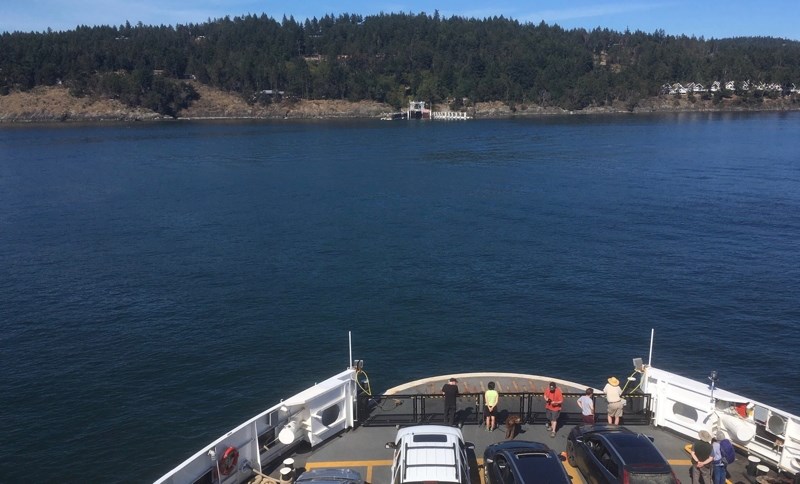Priority loading for residents of destinations served by B.C. Ferries is now scrapped, but it is remaining in place for vehicles carrying goods and services to communities along the coast.
The priority boarding measures were imposed at the start of the pandemic.
On Thursday, Minister of Public Safety and Solicitor General Mike Farnworth announced the latest updates to the province’s emergency plan, noting that it also covers medical-assured loading on the first available vessel.
Deborah Marshall, spokesperson for B.C. Ferries, said the corporation has an existing medical assured loading program. “We are just in receipt of that [provincial] order and are working out the details.”
In March, the province brought in priority boarding fleetwide for passengers heading to their primary residence.
This came into effect at the beginning of the pandemic when ferry sailings were significantly reduced, Claire Trevena, minister of transportation and infrastructure, said in a statement.
“We wanted to ensure people could get home and to help ensure essential services for remote communities were maintained.”
Now that more British Columbians are travelling within the province, B.C. Ferries is expected to “continue to monitor demand and ensure adequate capacity is in place,” Trevena said.
Corrine Storey, B.C. Ferries vice-president and chief operating officer, said, “More and more British Columbians are choosing to vacation at home this summer, and we are working to balance all the needs and pressures on the ferry system.
“We know that many communities want to bring back tourism while ensuring safety in the communities to restart their economies. We believe this amendment to the [emergency] ministerial order will help.
“B.C. Ferries will continue to load reserved traffic and standby vehicles carrying essential goods on the next available sailing, before other customers.”
Strathcona Regional District director Jim Abram, of Quadra Island, said his phone line lit up as word spread Thursday that the priority loading system for residents was cancelled.
He favours priority boarding for residents because islanders can face two to three sailing waits at the terminal, he said.
“We are facing an absolutely untenable situation.”
Quadra Island residents need to go to Campbell River to pick up supplies, for medical appointments, and for work. About a dozen Quadra Island residents work at the Campbell River hospital, he said.
The way that priority boarding for residents was imposed was confusing because it wasn’t clear how it applied to both full-time and part-time residents, he said.
But Abram said priority loading for residents can work, pointing to Cortes Island residents who use a priority lane to Campbell River twice a week. If the recent system had been developed with local input, “We could have come to a solution, I guarantee it,” Abram said.
Rather than killing the initiative, he is calling for consultation with the public to design a workable plan.
Medical assured loading requires a request from a doctor, along with a special form. Passengers meeting the criteria receive a letter to show to the ticket agent.
Abram, who suffered a serious back injury this year, uses the assured medical loading system allowing for priority boarding.
His doctor applied for and received the latest pass from B.C. Ferries.
Courtenay’s Joshua Schafer faces a complex medical situation because his two children must be taken to the Lower Mainland for care, sometimes on short notice. The youngsters, aged nine and six, each have kidney disease.
Rather than applying for assured boarding each time, he said a one-year approval would suit his family’s situation, given the uncertainty of the situation. He figures the family travels between 12 and 20 times to Vancouver each year for medical treatment.
Marshall said: “With regards to people with ongoing treatment requirements, we work closely with the physicians and clinicians to determine what is best for the patient. If a customer’s doctor had requested a letter for a year, with a valid reason for the request — we would consider it on a case-by-case basis.”



